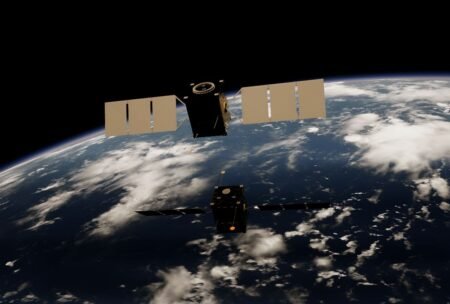The war with Russia in Ukraine has illuminated an existing problem: Europe has not been energy independent and has been too reliant on Russia as its energy source. Due to recent conflict, Russia cut its gas supplies to the EU by 88%, which impacted many countries across Europe.
This reduction in oil has also acted as a catalyst for increasing energy prices overall, among them being electricity. Not only was there a reduction in oil, but also a scarcity of power. This limited resource resulted in the inflation of energy.
Due to a more mild winter, Europe was able to survive with minimal upset and hardships, compared to what was originally estimated. Finding solutions to counteract this dependence moving forward is essential, as the repercussions of insufficient energy can have a severe result.?
Impact of Energy Scarcity
A scarcity of resources has resulted in an increase in prices, which makes life even more difficult for middle-class families who are already struggling under the burdens of inflation.?
Many European countries have endured even worse inflation than America.?
Household Changes
With Europe seeking to adopt more energy independence in conjunction with environmentally-friendly energy options, they have also asked their citizens to make sacrifices. In many countries, citizens were asked to cut their energy expenditure by as much as 20% per household.
One solution that households have found to conserve energy has been the use of space heaters. These act as a tool to only heat the rooms that are being occupied. This allows families to turn down the heat for the rest of the home.?
Long-Term Solutions
Europeans are making conscious choices to help combat their energy dependency, however, and have also adapted different policies and initiatives to help ensure that their dependency on Russia does not become a crutch again. With an eye on the future, they are trying to be more conscientious of the environment and use renewable energy sources moving forward.
With an eye to solar and wind, governments are offering greater incentives to companies to pursue these long-term environmentally friendly solutions.?
Thus far, regulations have made the EU less appealing for companies to invest in due to governments being unable to directly aid and support innovative energy companies. Officials are looking to put a temporary hold on this rule to help draw more companies to Europe and better invest in its infrastructure.??
Nuclear Energy
Nuclear energy is not considered a renewable energy, due to its reliance on the mining of uranium. Uranium itself, although radioactive, is an abundant resource that is found all over the globe.?
Uranium is a unique resource because it can be recycled. Technology has enabled up to 96% of nuclear fuel to be recycled and reused. This makes it so that mining uranium continuously for fuel is not needed.
The History of Nuclear Energy
When individuals think about nuclear energy, their first thought is often of the disastrous accident in Chernobyl in 1986, which left about 30 dead after the initial blast and 60 in the following years as a result of exposure. The nuclear plant in Chernobyl was still operational, however, and continued to produce energy until it was closed in 2000.
Present Day
Some view nuclear energy as dangerous and it is not categorized by many as a renewable resource. With the looming energy crisis in the winter of 2022-2023, Germany chose to keep their nuclear energy plant open. Although they had previously planned to close it, as they were striving for more environmentally friendly solutions, their needs outweighed their climate friendly agenda. This was done in an effort to counteract the loss of Russia’s decreased supply.
Conclusion
Europe is still striving to find the best way to counteract its previous dependence on Russia for energy. The war in Ukraine has only acted as a catalyst to propel them forward more quickly in making concrete and lasting solutions that will benefit their countries for years to come.??







